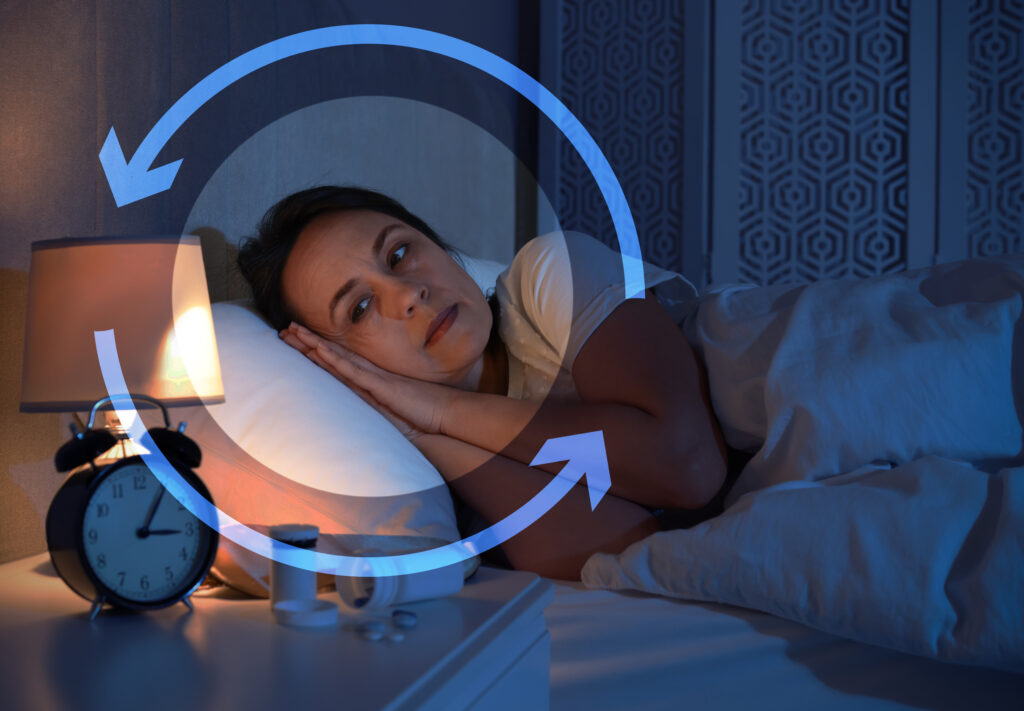Sleep is a vital part of human lifestyles, vital for normal fitness and well-being. Yet, no matter its importance, many human beings forget about how sleep works or its impact on the body and mind. The sleep cycle, which includes outstanding levels, plays a critical characteristic in bodily healing, memory consolidation, and emotional regulation. Understanding one’s ranges and their significance can help us adopt practices that make our sleep and, in turn, our everyday lives.
This article explores the stages of sleep, their importance, and actionable pointers for engaging in better relaxation. By statistics the technological data in the lower again of sleep, we will take practical steps to beautify our sleep styles and regular health.
Stages of Sleep You Need to Know
Sleep isn’t always a uniform United States but an opportunity a cycle that repeats more than one time in the direction of the night time time time. A complete sleep cycle lasts approximately ninety minutes and includes 4 top-notch levels, labeled into non-fast eye movement (NREM) sleep and speedy eye motion (REM) sleep.
Each degree serves specific capabilities, and cycling through them is crucial for physical and highbrow rejuvenation.
Leverage Technology Like DrPro
For individuals seeking to understand and optimize their sleep patterns, DrPro Clinic management offers valuable tools and insights. It tracks key aspects of your sleep, including duration, quality, and disruptions, to provide a clear picture of your nightly rest. By utilizing DrPro’s data-driven recommendations, you can identify factors affecting your sleep and implement changes to improve your overall health and energy levels.

The Four Stages of Sleep
1. Stage 1: NREM Sleep (Light Sleep)
- Duration: Typically lasts 5–10 mins.
Characteristics:
- The transition between wakefulness and sleep.
- Muscle hobby decreases, and the eye moves gradually.
- Brain hobby starts offevolved to slow but retains a little responsiveness to outdoor stimuli.
Purpose: Helps the body put together for deeper sleep ranges.
2. Stage 2: NREM Sleep (Deeper Light Sleep)
- Duration: Approximately 20 mins in line with the cycle.
Characteristics:
- Heart rate and body temperature lower.
- Brainwave interest slows, with occasional bursts of rapid interest referred to as “sleep spindles.”
Purpose: Stage 2 sleep money is owed for a top-notch part of preferred sleep and plays a function in-memory processing and cognitive function.
3. Stage 3: NREM Sleep (Deep Sleep)
- Duration: About 20–40 mins, reducing with age.
Characteristics:
- Slow thought waves called delta waves dominate.
- Physical safety gets up as tissues and muscle businesses are restored.
- Immune device strengthens in the route of this level.
Purpose: Often known as “restorative sleep,” this diploma is important for physical health and power recuperation.
4. Stage four: REM Sleep (Dream Sleep)
- Duration: The first REM level lasts approximately 10 minutes, developing in periods at a few degrees inside the nighttime.
- Characteristics:
- Rapid eye actions and ordinary respiration styles.
- Brain hobby similar to wakefulness.
- Most dreaming takes region subsequently of this diploma.
Purpose: REM sleep is critical for memory consolidation, getting to know, and emotional processing.
The Importance of Each Stage
Stage 1 and Stage 2
These degrees set the foundation for uninterrupted sleep. They help transition the frame into restorative states, making sure you develop via the sleep cycle without common awakenings.
Stage 3
Deep sleep is the body’s restoration workshop. Growth hormone manufacturing peaks within the path of this phase, helping in muscle recuperation and tissue restoration. It additionally fortifies the immune device and prepares the body to address everyday stressors.
Stage 4 (REM Sleep)
The REM diploma lets in highbrow skills. It integrates recollections, techniques feelings, and fosters creativity. Lack of REM sleep can result in cognitive impairments, decreased trouble-solving competencies, and temper swings.
Each diploma builds upon the opportunity, and disruptions in a single diploma can impact the splendid of your sleep cycle and common health.
Sleep Tips for Better Rest
Good sleep hygiene is vital for retaining a green sleep cycle. The following sensible recommendations allow you to benefit from better rest and maximize the blessings of every sleep diploma:
1. Maintain a Consistent Sleep Schedule
- Go to the mattress and awaken at the same time each day, even on weekends.
- An everyday time desk lets in adjust your internal clock, making it less complex to go to sleep and wake up manifestly.
2. Create a Relaxing Sleep Environment
- Keep your mattress room dark, quiet, and cool (around 60–sixty seven°F or 15–19°C).
- Use blackout curtains, white noise machines, or earplugs to lessen disturbances.
3. Limit Exposure to Screens Before Bedtime
- Reduce show time at least 1–2 hours in advance of sleep.
- Blue mild from gadgets can suppress melatonin production, a hormone essential for sleep.
4. Watch Your Diet
- Avoid large food, caffeine, and alcohol near bedtime.
- Opt for sleep-promoting food like bananas, almonds, and heat milk if you’re hungry in advance of bed.
5. Incorporate Relaxation Techniques
- Practice deep breathing, meditation, or mild stretching to unwind in advance of than mattress.
- Reading or being attentive to soothing music also can sell rest.
6. Stay Physically Active
- Regular exercising improves sleep super, but keep away from active-wearing events overdue inside midnight.
- Aim for at least 1/2 of an hour of slight physical interest every day.
7. Limit Naps
- If you need to nap, preserve it quickly (20–half an hour) and keep away from napping overdue within the day.
- Excessive or overdue naps can intrude with nighttime sleep.
8. Seek Professional Help if Necessary
- If you experience chronic sleep issues and are trying to find a recommendation from a healthcare business enterprise.
- Conditions like insomnia, sleep apnea, or forced legs syndrome can also require scientific hobbies.

Conclusion
The sleep cycle is a complicated but fascinating device that affects nearly every element of our fitness. Understanding its levels and importance empowers us to make knowledgeable selections approximately our sleep behavior. By following clean however effective sleep guidelines, we will beautify the wonderful of our relaxation and release the several benefits of a properly functioning sleep cycle.
Remember, sleep is not high-priced however a need for a healthful and amusing life. Make it a difficulty, and your body and mind will thank you.
By understanding the sleep cycle and adopting healthy sleep habits, you can unlock the secrets to better rest and improved overall health.
Stay connected with DrPro Wellness for more instructive articles.
FAQs
Q1. How an entire lot sleep do adults want?
Adults usually need 7–to nine hours of sleep consistent with nighttime, despite the truth that a person’s needs may additionally moreover range based totally on elements like age, manner of lifestyle, and health.
Q2. Why can we dream in some unspecified time inside the destiny of REM sleep?
Dreams upward thrust up in the long run of REM sleep due to heightened thoughts and interest. They also can furthermore play a role in processing feelings, consolidating memories, and fostering creativity.
Q3. Can deep sleep be superior?
Yes, deep sleep can be greater right through ordinary workouts, strain control, and retaining a normal sleep timetable. Avoiding caffeine and heavy food in advance than mattress furthermore lets in.
Q4. What are the symptoms of terrible sleep remarkable?
Symptoms of horrible sleep remarkably encompass issues falling or staying asleep, waking up tired, daylight fatigue, irritability, and problems concentrating.
Q5. Is it normal to awaken inside the route of the night time time time time?
Occasionally waking up in the path of the night time time time time is every day, however, common awakenings that disrupt the sleep cycle and may also additionally moreover suggest an underlying hassle and want to be addressed.

